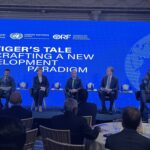The Observer Research Foundation (ORF), in collaboration with the Permanent Mission of India to the United Nations, the AI Impact Summit 2026, the United Nations in India, and the Reliance Foundation, hosted a high-level ministerial event, “At the Heart of Development: Aid, Trade, and Technology,” on the sidelines of the 80th Session of the UN General Assembly on September 24, 2025, at the Mandarin Oriental in New York.
In his welcome remarks, India’s Permanent Representative to the UN, P. Harish, said the theme was especially timely. Marking the UN’s 80th year, he observed that the majority of the global population, especially citizens of the Global South, face an international economy burdened by crises and climate change, trapped in a cycle of low growth, weak investment, and unmet development needs.
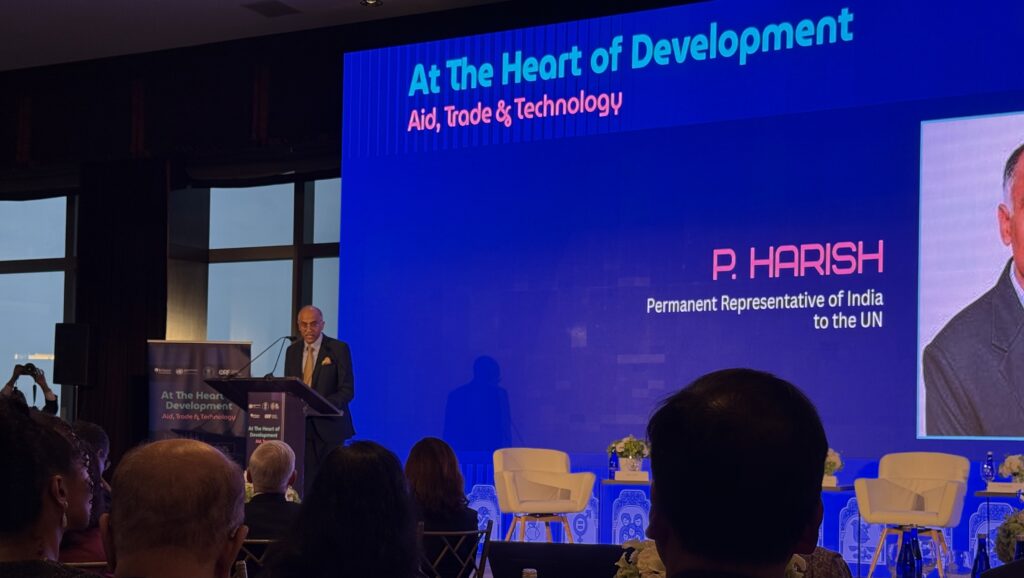
Ambassador Harish highlighted challenges for the Global South, including unmet aid targets, shifting trade dynamics, and geopolitical headwinds. He stressed the importance of structural diversification, domestic revenue mobilization, and robust South-South policy cooperation. He also underscored the transformative role of emerging technologies such as AI, bioinformatics, and genetics in enabling the Global South to leapfrog development barriers.
The event also saw the launch of the report “Global Goals, Indian Vision: The Last Mile to 2030.” Citing India’s third Voluntary National Review, ORF President Samir Saran said the report reflects why “SDGs has India at its brightest spot,” adding, “as we enter the last mile of the next five years, you could see in 2030 the Indian story define the SDG goals.”
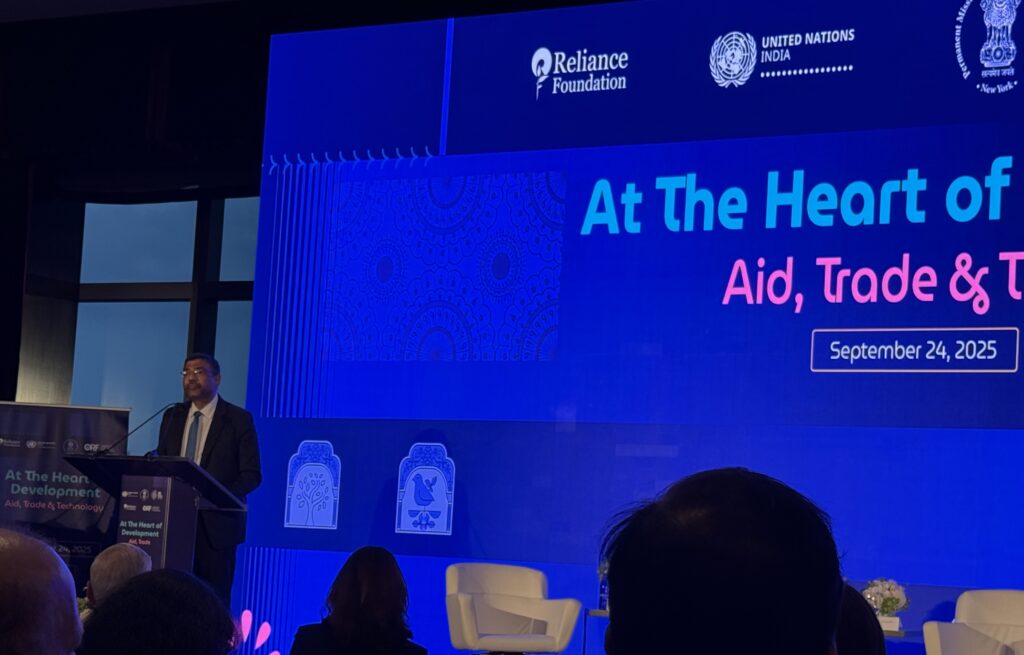
Delivering the keynote address, Secretary, Ministry of Electronics and Information Technology, S. Krishnan, India, emphasized technology as the main driver of development. “Every big spurt of growth that the world has seen has arisen out of change in technology,” he said, describing artificial intelligence as a horizontal technology with transformative potential across sectors.
Krishnan noted this may be the final opportunity for countries of the Global South to achieve prosperity before demographic shifts set in.
Explaining India’s decision to host the fourth AI Impact Summit in February 2026, Krishnan said Prime Minister Narendra Modi has personally stressed the need to focus on impact. The two-day summit will take place in New Delhi from February 19–20, 2026.
The high-level panel featured S. Jaishankar, India’s Minister of External Affairs; Juan Ramón de la Fuente, Mexico’s Secretary of Foreign Affairs; Sultan Ahmed bin Sulayem, Chairman and CEO of DP World, UAE; and Leslie Vinjamuri, President and CEO of the Chicago Council on Global Affairs, with Samir Saran moderating.
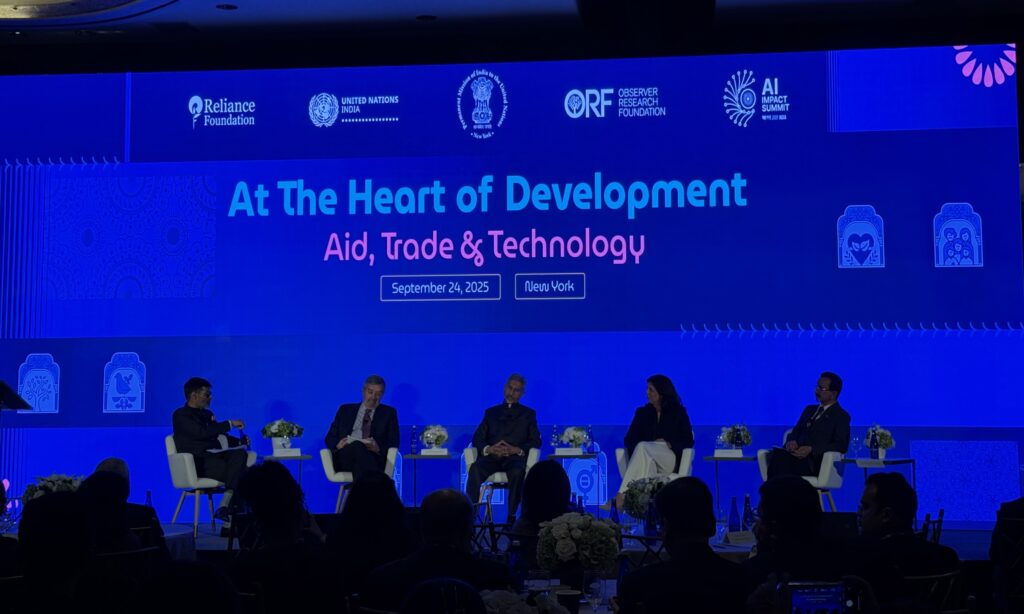
Responding to a question on India’s recent lessons in power and vulnerability, Jaishankar said the world is moving toward greater “unpredictability, volatility, and uncertainty.”
He noted that in recent years, supply chains and sources of production have become major concerns, leading to calls to “de-risk the world” by creating more resilient and redundant supply lines. Today, he warned, overdependence on markets poses an equal risk.
“I would say today the central proposition, probably in diplomacy and international relations, is, how do you de-risk, how do you hedge, how do you become more resilient, how do you safeguard yourself against unforeseen contingencies…” he said.
Minister Jaishankar added that the global order is shifting toward “multipolarity,” prompting countries to seek new partners and broader economic engagement. “Their interest today in moving forward with India was very palpable… and reciprocated by us,” he noted, referring to European partners.
Mexico’s Foreign Secretary echoed the urgency for change, saying the evolving global environment requires rethinking old approaches.
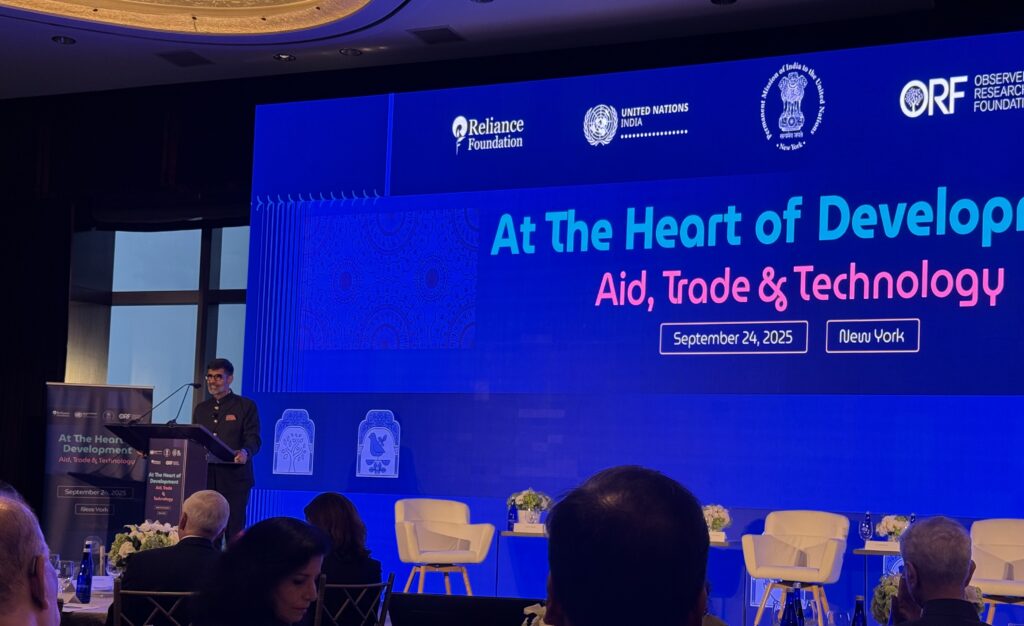
“They will no longer work. We’ve seen that now,” he said, emphasizing that the Global South must deepen engagement both within the region and with the North. “I think the game is going to go much more by regions than by countries,” he added.
“The trade sector remains highly resilient. The main challenge lies in supply chain disruptions, as seen in the Red Sea and other regions,” Bin Sulayem said, emphasizing the importance of developing alternative routes. In this context, he highlighted the pivotal role of the India–Middle East–Europe Economic Corridor (IMEC).
Vinjamuri observed that two-thirds of Americans are dissatisfied with cuts to foreign aid. She pointed out that this discontent reflects a “legitimate set” of grievances rooted in significant “distributional problems” within developed countries, particularly the United States, which are unrelated to the Global South.
She attributed these challenges largely to policy decisions by those countries’ leaders especially in the aftermath of the 2008 financial crisis.





